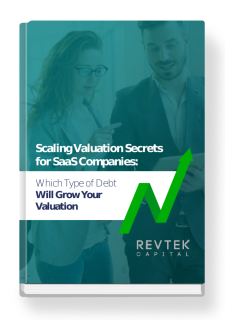Venture Capital funding is a billion-dollar industry based out of Silicon Valley that most technology and software companies turn to at some point in the start-up or growth stages. They believe this will help them get a boost in funding to take their company to the next level.
There are advantages and disadvantages of venture capital, as with most avenues for raising money. Still, many small tech businesses are turning away from venture investors and seeking alternatives. Why is that?
Pressure to Grow
When venture capitalists invest, they intend to see growth. Of course, the founders also want to see their company grow. But investors’ added pressure and input might influence owners to make big decisions at an early stage that they would not otherwise make.
It is also challenging to measure growth outside of numbers, such as revenue, staff size, and business scale. But many factors that play into making a company successful are not measurable by a number, such as drive, intelligence, business sense, etc. The key is to remember that just because something is big does not always make it better.
Grow Fast at All Cost
One aspect of the VC industry business model is to see an investment reach a return of $100 million by the end of the first year. One misbelief that leads to turning to venture capital investments is that the only thing a start-up lacks is capital. Therefore, the belief is that any start-up with a great idea can reach that goal with an influx of cash.
But capital alone cannot ensure that a company has a firm foundation of staff, procedures, product, management, etc. Risky decisions are required to reach the growth metric, including cutting corners, sacrificing quality, and risking burn out to get the intended goal.
Unchecked Issues
Because of this pressure to grow and move quickly, many issues are overlooked or ignored with the mentality that they will “fix it later.” When the primary goal is speed, then quality and error correction get overlooked. However, this practice tends to catch up with companies.
For instance, selling a product or service at a high price point may reach an intended profit goal. Still, if the quality is never ensured or evaluated, reputation may decrease. This impact leaves the company with a more significant problem than when they started.
Lack of Long Term Thinking
Many times, decisions made to reach fast growth are not sustainable, such as hiring large amounts of salespersons or experts who do not bring in enough profit to sustain high salaries. The dilemma then becomes decreasing staff, which may hinder growth or contribute to a high staff turnover due to underfunding. This situation is lose-lose for all when the company reaches its breaking point.
Venture Capital firms also tend to convince founders to overestimate their potential to reach the all coveted “unicorn status” as a company. These firms tend to operate in the belief that the founders will receive a massive payout when selling and will have them turn down “lesser” offers. This practice leads to disappointment when a founder finds they must sell at a lower number than an offer they may have previously received.
For a VC firm, selling a company for $100 million does not reach the current measure of “success” in the venture capital industry. But for the owner of a start-up company, that number is hugely successful.
VC Input
The most stressful and potentially detrimental aspect of seeking venture funds is the sacrifice made in ownership and decision-making. Most venture capitalists trade funding for a spot on the board or part ownership of the company, which can be beneficial for having expert input and advice from those who have seen success in the past.
Seeking venture funds also increases the potential for a founder to lose control of their company. They may implement strategies that have been “proven” to work for other companies, but will not work now. There is a great tendency to copy what other successful companies have done in the VC world rather than replicating the mindset behind what made them successful.
The Venture Capital Industry is one of high risk, high reward. Therefore, many VC firms have diversified portfolios of investments, knowing that two-thirds will be written off as failures. They count on the remaining third to make up for the loss and produce a profit.
Therefore, for small businesses in need of capital, it may be a better choice to partner with a different capital investment type. One that does not see the potential of failure to write off, but as a business whose success is tied to their own.
Alternative Choice
During the dot com bubble of the ’90s, Venture Capital rose to extreme heights as the leading way to grow business in the world of technology and the internet. But just as technology is always evolving and growing, capital ventures should be too. Though limited partners, those who invest in VC, are mostly unwilling to risk new strategies, the good news is that new investment opportunities are beginning to emerge.
At Revtek, we desire to see your company grow at the rate and speed that you know is best for you. We offer the lowest cost of capital available and increments that will not force you to make significant and profitable decisions at the expense of quality. We offer experienced expert advice to you but do not require input into how you do business. Our involvement is entirely up to you.
To start a conversation about how RevTek can help your business grow, connect with our team.



